Huawei P30 review: an excellent phone and a great all-rounder
Ticks all the boxes you want, from a great camera to impressive battery life
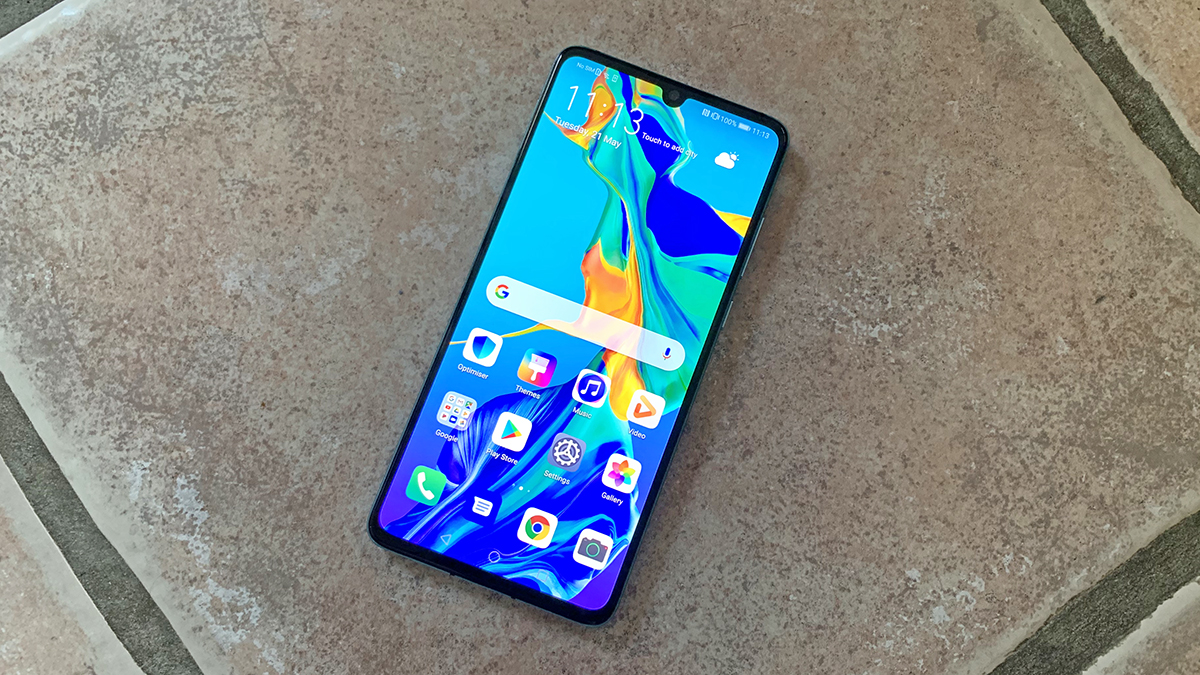
Setting aside for one moment Huawei's ongoing issues with the US and access to the Google Play Store, this is another superb handset from Huawei. We'd recommend it as a fantastic flagship, but be aware that future Android updates might not ever arrive.
-
+
Excellent triple-lens camera
-
+
Long-lasting battery life
-
+
Stylish design and colour choices
-
-
Software remains so-so
-
-
No 5x zoom as on the P30 Pro
-
-
Google partnership in doubt
Why you can trust T3

Huawei P30 key specs
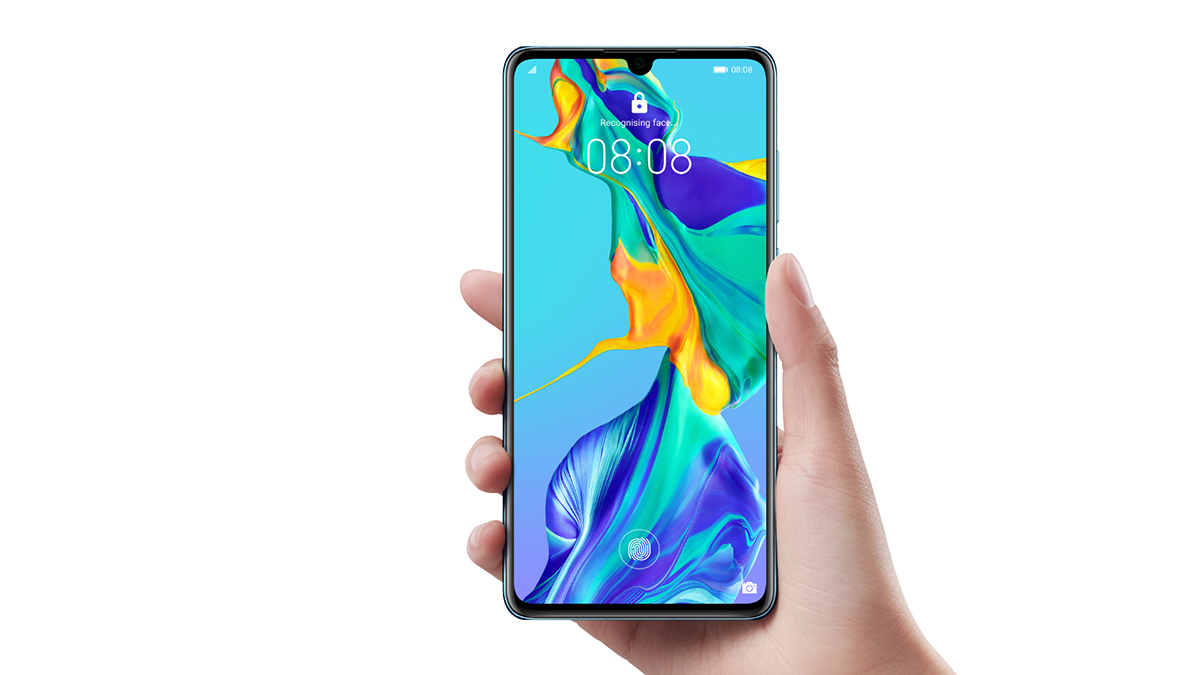
Dimensions: 149.1 x 71.4 x 7.6 mm
Weight: 165 g
Screen: 6.1-inch, 19.5:9, 422 ppi (1,080 x 2,340)
CPU: Kirin 980
RAM: 6GB/8GB
Storage: 128GB/256GB/512GB
Battery: 3,650 mAh
Cameras: 40MP + 16MP + 8MP rear / 32MP front
OS: Android 9.0 Pie, EMUI 9.1
Our Huawei P30 review is here to tell you exactly how well (or otherwise) Huawei's 2019 flagship phone hits its targets – it's smaller than the Huawei P30 Pro, and doesn't have as good a camera, but it's a solid step up from the Huawei P20.
Is it something you should be spending your money on? Google's recent announcement that it won't be supporting Android on future Huawei phones is worrying, but if you pick up the P30 you know you'll have full access to the Google Play Store at least. What you won't get is any future Android updates – at least not until Huawei and Google (and the US and China) sort out their differences.
- Huawei P40 Pro review: flawed beauty
- These are the best smartphones money can buy right now
- All the best Android phones together in one place
- Samsung Galaxy S10 vs Huawei P30 Pro: the flagship phones go head to head
The Huawei P30 is smaller, thinner and less expensive than the Huawei P30 Pro, but the phones are very similar in many other areas – from the teardrop display notch to the super-fast Kirin 980 processor under the hood. The main benefit of picking up the P30 Pro is that extra rear camera lenses, which means a massive 5x optical zoom that you don't get on the standard P30.
If you can live with a very good rather than a great camera though, we think the Huawei P30 is a very appealing proposition. It's fast, it's well built, and it ticks a lot of the boxes you need from a flagship in 2019 (trade wars notwithstanding).
Huawei P30 review: price and availability
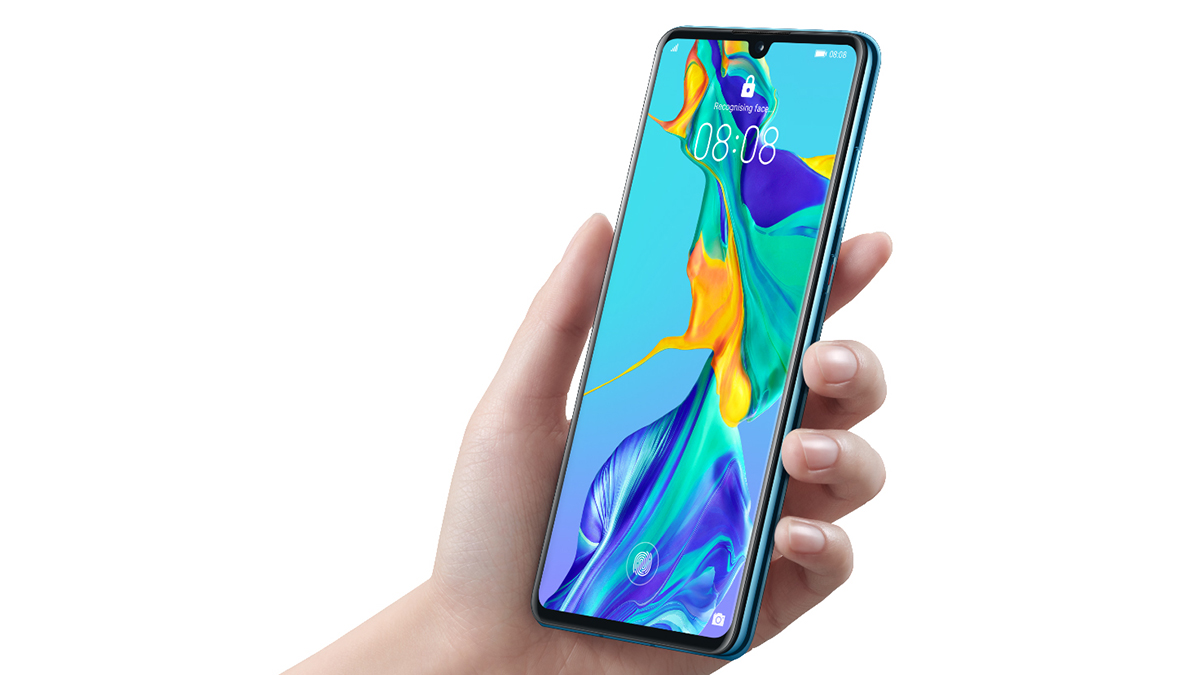
The Huawei P30 is out now and available to buy in Aurora, Amber Sunrise, Breathing Crystal, Black or Pearl White (the same colour choices as the P30 Pro). In this review we're looking at the Aurora model, that blue-to-turquoise gradient shade that we think looks rather appealing.
You can pick the phone up from a wide range of retailers and networks: Giffgaff has it for £649 SIM-free up-front, or £30.98 for 24 months with a £25 up-front payment. Over at Carphone Warehouse the P30 is yours for £699 SIM-free up-front, or £34 for 24 months with a £29.99 up-front fee.
Most retailers, including Mobiles.co.uk and Amazon, will sell you the phone for around £700 without a SIM. Typically, paying everything up-front for the handset, you should be able to get the P30 for about three-quarters the price of the P30 Pro – a substantial saving.
Huawei P30 review: camera
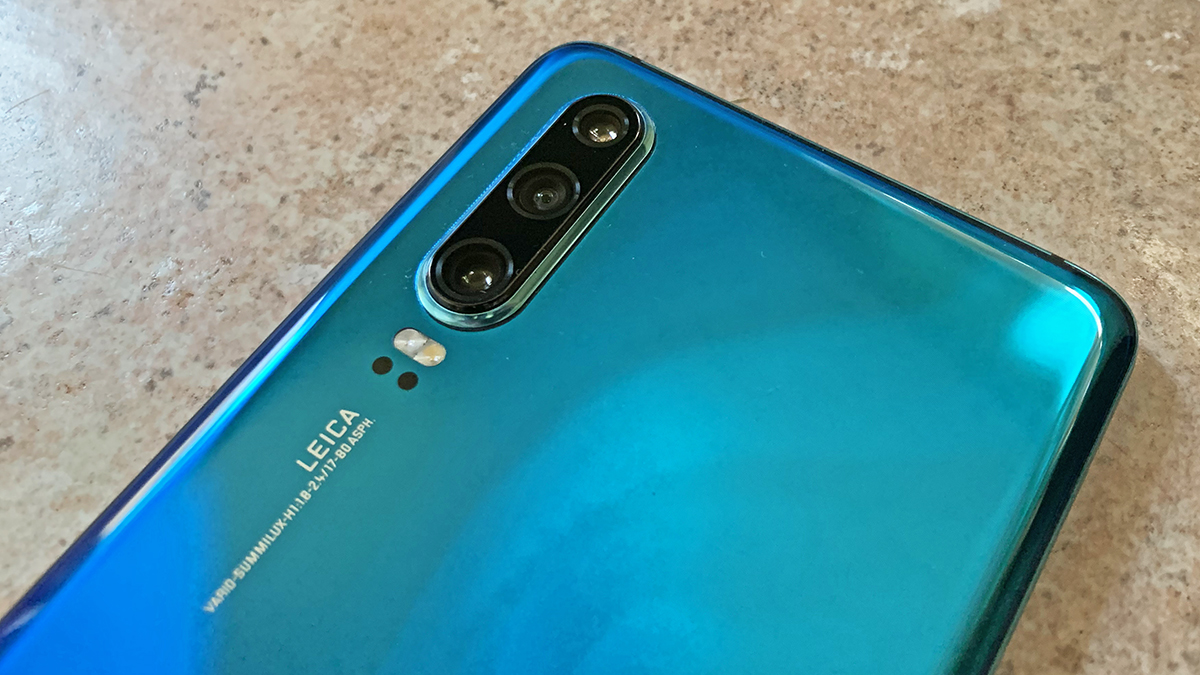
Does the phone justify that substantial saving? The rear camera is the biggest difference between the Huawei P30 and Huawei P30 Pro, because you get an extra lens and 5x optical zoom thrown in – in the case of the P30, you only get 3x optical zoom, so the P30 Pro can get you almost twice as close to the action without losing any image quality.
Huawei has always been passionate about the cameras on its phones, and this is once again in evidence with the Huawei P30. The camera systems on the P30 and P30 Pro have been rebuilt from the ground up, ditching the traditional RGB (Red Green Blue) sensors for RYYB (Red Yellow Yellow Blue): that apparently lets in more light.

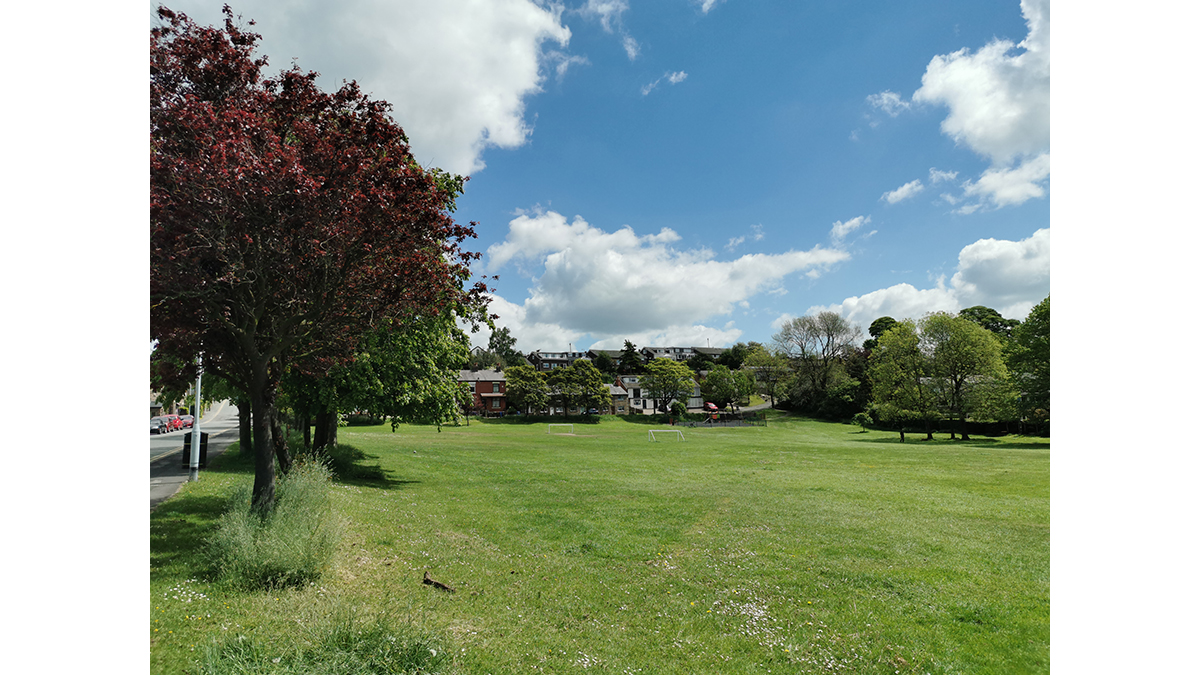


Switching to a completely different sensor setup from the rest of the industry is no small task, but add in Huawei's on-board AI processing, and we're pleased to report that the Huawei P30 takes some excellent photos. The 40MP f/1.8 wide-angle, 16MP f/2.2 ultra-wide, and 8MP f/2.4 telephoto camera lenses combine to create some fantastic results, no matter what the conditions.
Low light performance is very, very good – perhaps not quite up to Google Pixel Night Sight standards, but close enough. There is one caveat: if you want to take advantage of the built-in night mode here, you need to keep the phone still for several seconds. You can take decent night time shots without it, but you get better shots with it enabled.
The vast majority of photos we were able to take with the Huawei P30 were sharp and accurate, with minimal noise and plenty of detail. Colours are well reproduced, dark and light areas are well balanced, and images get captured in a snap – it really is an impressive camera setup and one of the best we've tried.


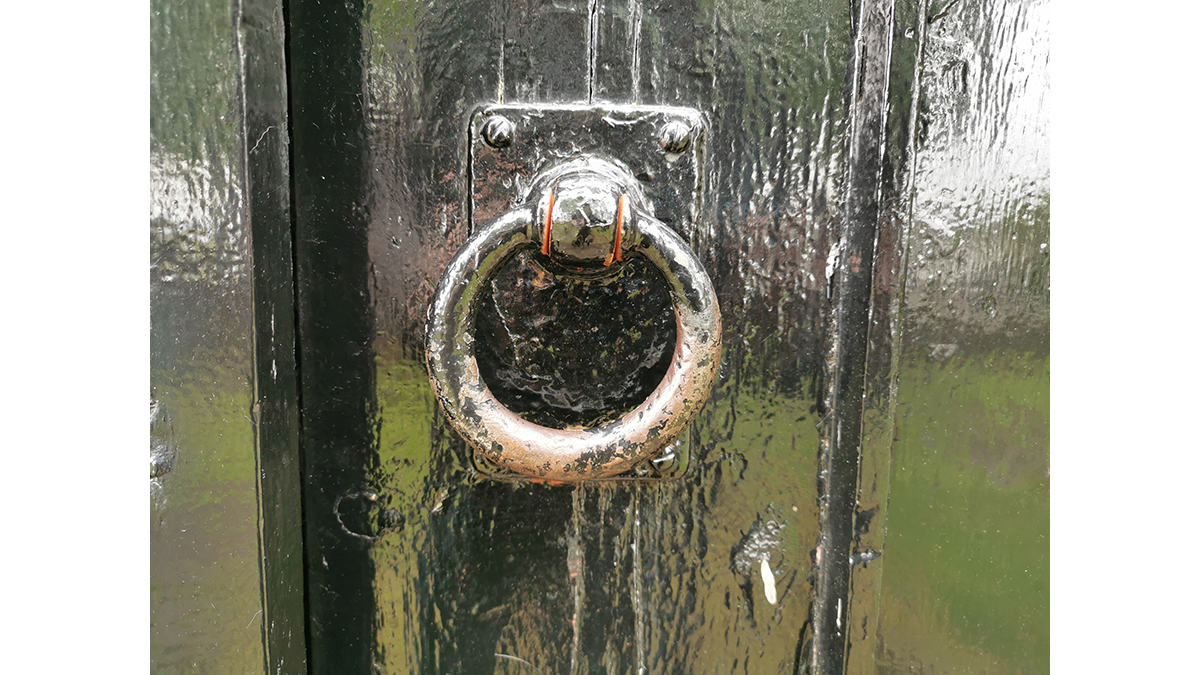
The Huawei P30 Pro will certainly get you closer to the action and produce slightly better snaps – especially in low light – but there's not a huge amount to choose between the P30 and P30 Pro in the camera department, even with that extra lens (which is mainly to add extra zoom capabilities after all).
If you don't mind a bit of a loss in quality, you can actually zoom in up to 30x with the Huawei P30, though we wouldn't really recommend it – you also need to dial down the photo size from 40MP to 10MP to take advantage of this. Unless you absolutely have to see something close up, stick to the 3x or below.
The camera can record video at up to 4K at 30 frames-per-second too, as well as offering up a fun slow-motion video feature to play around with. The usual plethora of Huawei shooting modes are included too, from monochrome to light painting, which can help you capture snaps that stand out.

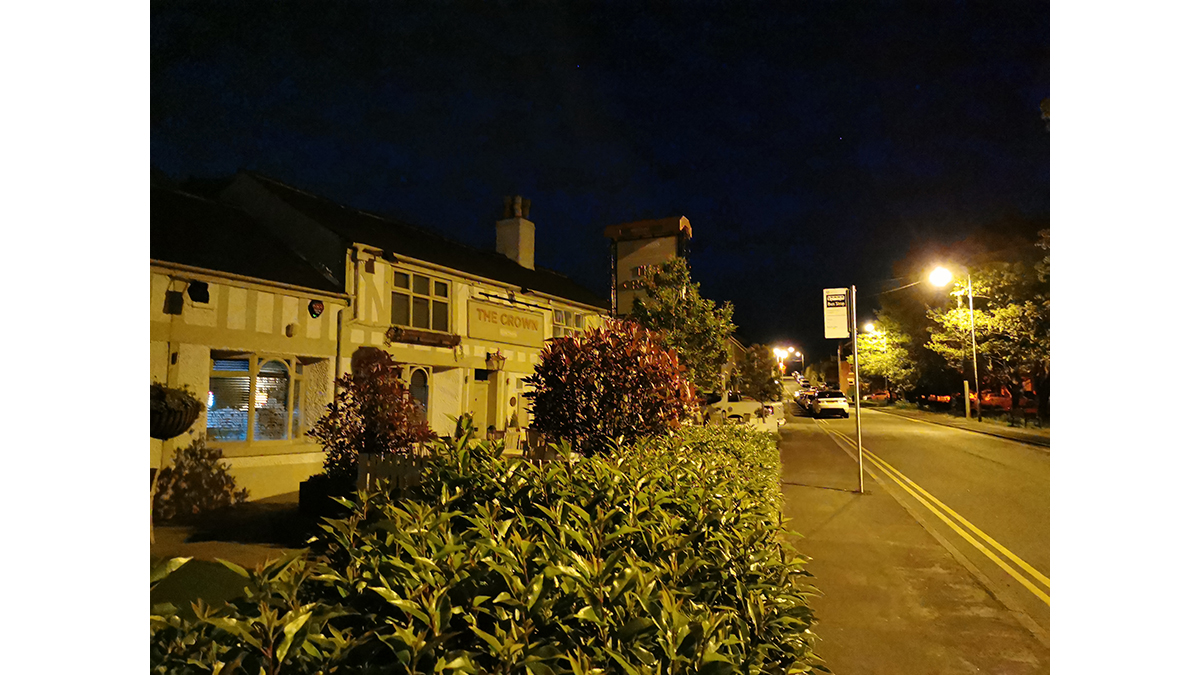


In our testing there was never a scenario that the Huawei P30 did terribly at, and in most cases the images it captured were very good, even excellent at times. Thanks to the combination of optics and software, you can genuinely just point-and-shoot in a variety of scenarios to get some winning shots.
That extra lens on the Huawei P30 Pro is missed of course, but perhaps not by as much as you would think. You still get a 3x optical zoom on this model, which can help everywhere from gigs to wildlife watching.
Huawei P30 review: design and display
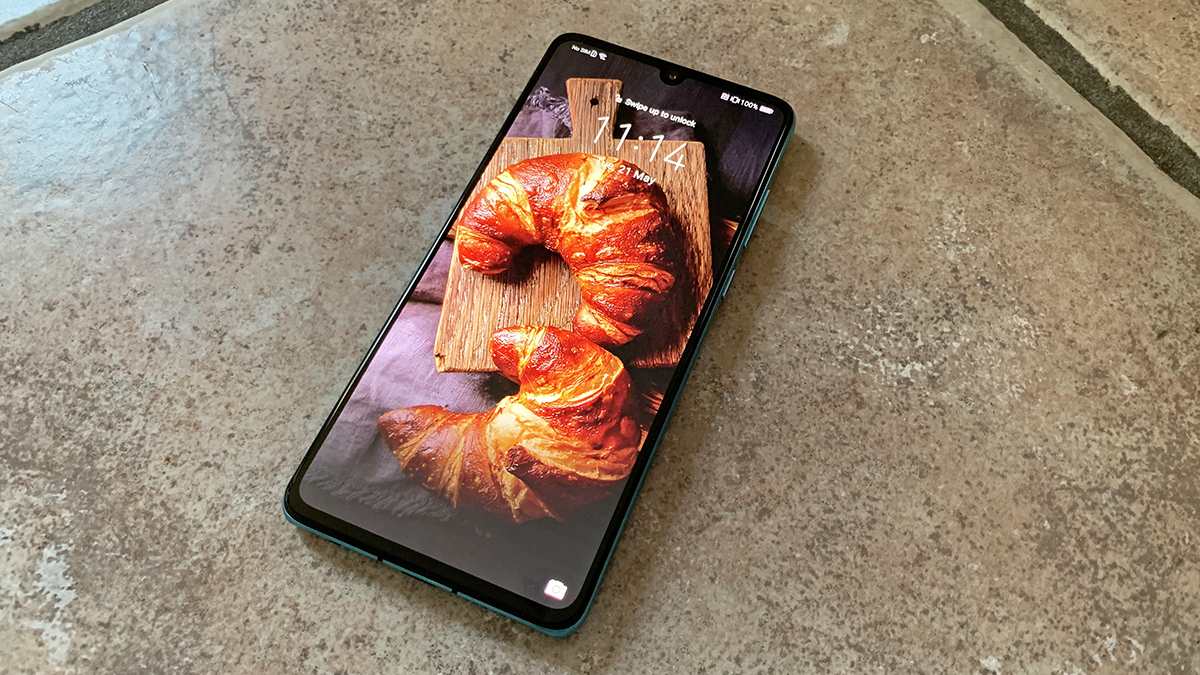
Huawei has done a fine job with the design of the P30, building on last year's P20 to bring us a phone that's even more refined and stylish. That small teardrop notch really helps, as does the bright, rich 6.1-inch screen. The 1,080 x 2,340 is sharp and vivid, and actually offers up more pixels-per-inch than the Huawei P30 Pro.
Whether you're watching streaming video or flicking through your Instagram feed, the screen shows off any kind of content really well: it's definitely one of the highlights of the P30 package, and you've got HDR10 support here too. We found it a snug fit in our hands, and 6 inches or a little bit above seems to be a sweet spot at the moment.
When you're watching video in landscape mode, the notch is automatically blocked off so it doesn't impinge on your video viewing. You can also disable the notch in the phone's software settings if you like too, so you get a solid black bar across the top of the phone interface rather than a cut-out.
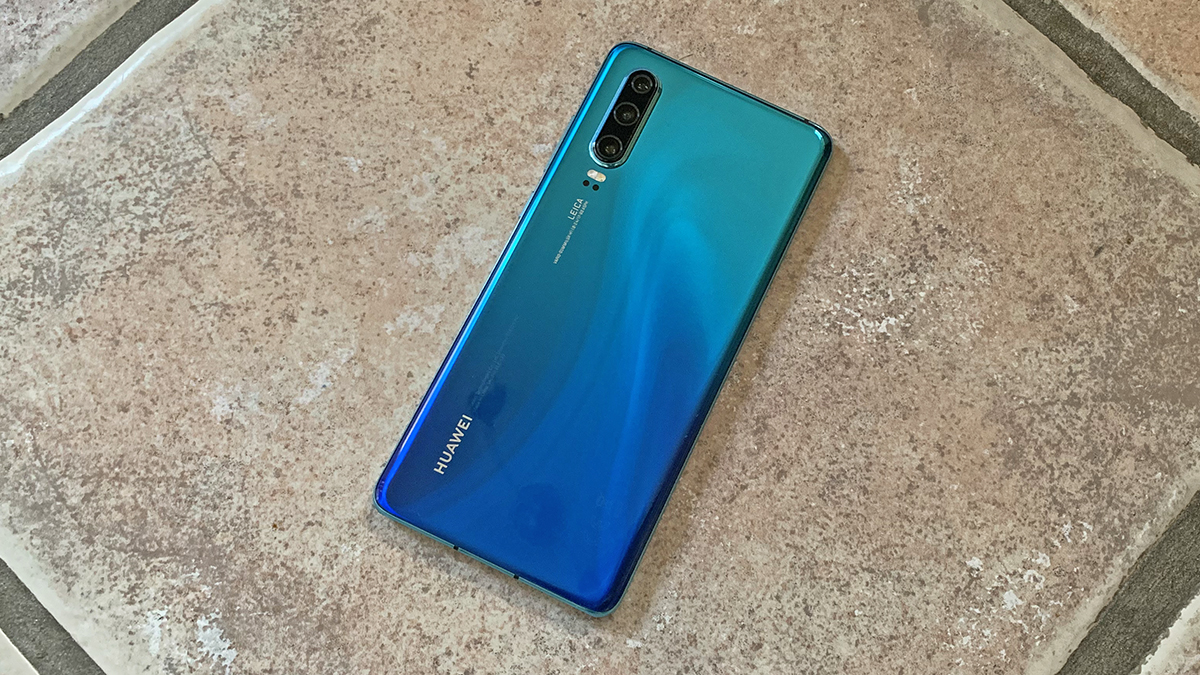
With minimal bezels, an eye-catching screen, a choice of appealing colours, and a fingerprint sensor that disappears under the screen, it's a definite two thumbs up for the design and display of the Huawei P30. In fact, with the smaller size, it's one of the areas we actually prefer it to the Huawei P30 Pro.
It might not look quite as stylish as something like the Samsung Galaxy S10 or the iPhone XS, but it definitely comes close, especially with those excellent colour choices. Nice touches such as the colour accent on the power button, and the positioning of the camera flash, add to the aesthetic appeal as well.
The Kirin 980 and 6GB or 8GB of RAM mean lightning fast performance too, and you'll struggle to get a faster phone this year. It's definitely not going to be slacking in the performance stakes, and in everything we managed to put the P30 through – from the latest Asphalt racing game to AR filter effects – it passed with flying colours.
GeekBench 4 benchmarks – Huawei P30

[CPU test]
Single-core: 3,267
Multi-core: 9,659
[Compute test]
RenderSript Score: 5,890
[Battery test]
Battery Score Estimate: 6,650
Huawei P30 review: software and features
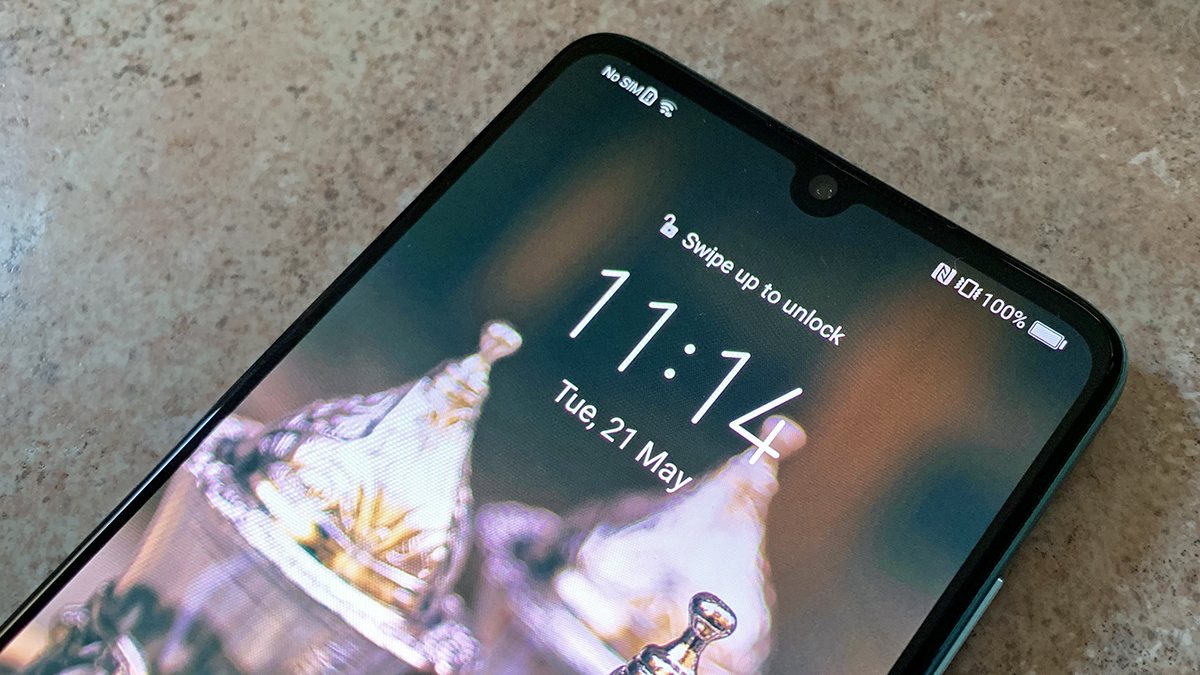
The Huawei P30 runs Huawei's own EMUI 9.1 software on top of Android 9.0 Pie, and it's a bit of a mixed bag. There's nothing specifically wrong with the software, but it's not as clean and intuitive as some other Android variations we've seen, like those from Samsung and OnePlus for example.
From the rather chunky and old-fashioned looking cartoony graphics, to the plethora of Huawei apps and services loaded on to the phone, the OS is perhaps one of the main downsides of the Huawei P30. This being Android though, it's not too difficult to tweak and customise to suit your own tastes.
Fast charging is included, and a 3,650mAh battery that in our one-hour-of-Netflix test dropped from 100 percent to just 95 percent – by some distance the best result we've ever seen in that test. That was backed up in daily usage, with a healthy 30-40 percent of battery life often left in the evenings after a day of normal smartphone tasks.
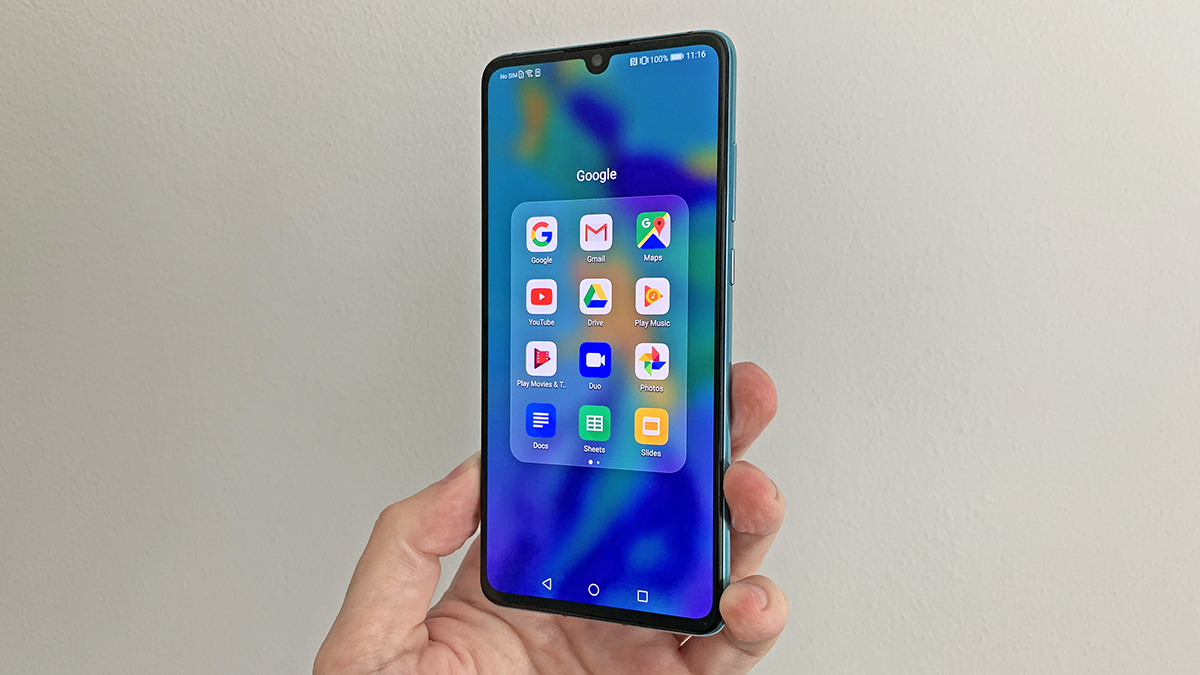
The Kirin 980 has some serious battery optimisation technology built into it, Huawei says, and based on our usage and testing we can well believe it. It's a refreshing change to find a phone that's so big and powerful and yet which doesn't suck up battery life at a worryingly fast speed.
Huawei has cut some corners on the P30 though. There's no wireless charging and no IP68 full waterproofing and dustproofing, which gives you two reasons to go for the Huawei P30 Pro instead. What we do get is a return of the headphone jack after it was dropped from the Huawei P20 phones, something that will please anyone with an expensive pair of wired headphones they want to keep on using.
The in-screen fingerprint scanner is an optical rather than an ultrasonic one, which means speedy performance – something we can attest to – but less reliability in the wet. We didn't come across any problems during our time with the phone though, and definitely prefer this to having a fingerprint scanner on the back.
Huawei P30 review: verdict
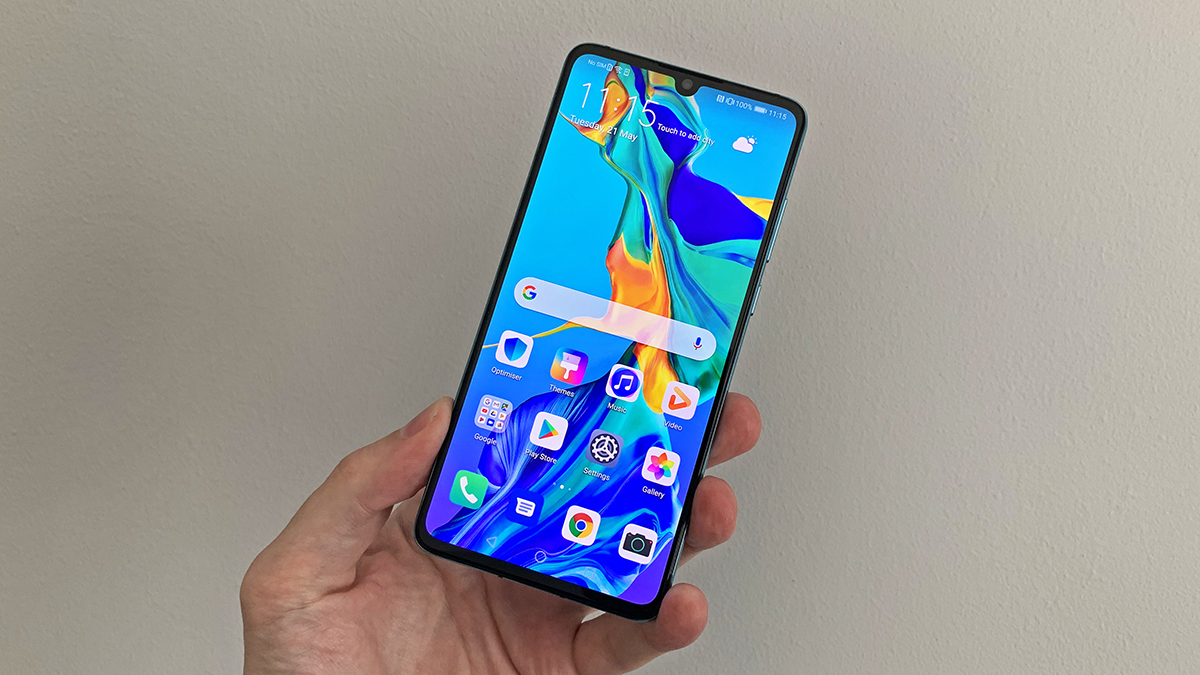
Of course the Huawei P30 Pro is a better phone than the Huawei P30, but it's also a more expensive phone, and in terms of internal power and specs the handsets match up almost identically. Factor all of that in, and we think there are going to be a lot of people who find this the preferable option.
Okay you don't get that extra lens and the extra zoom it provides, but you do still get a very good camera. Add in an excellent screen, superb battery life, and plenty of power under the hood, and you've got a phone that matches up well with the best handsets of 2019.
As we said at the start though, with no Android or Google support in the future, the Huawei P30 is a much less attractive proposition than it otherwise would be. You might want to check on the latest state of play between the US and China before pulling the trigger on this purchase.
Sign up to the T3 newsletter for smarter living straight to your inbox
Get all the latest news, reviews, deals and buying guides on gorgeous tech, home and active products from the T3 experts
Dave has over 20 years' experience in the tech journalism industry, covering hardware and software across mobile, computing, smart home, home entertainment, wearables, gaming and the web – you can find his writing online, in print, and even in the occasional scientific paper, across major tech titles like T3, TechRadar, Gizmodo and Wired. Outside of work, he enjoys long walks in the countryside, skiing down mountains, watching football matches (as long as his team is winning) and keeping up with the latest movies.
-
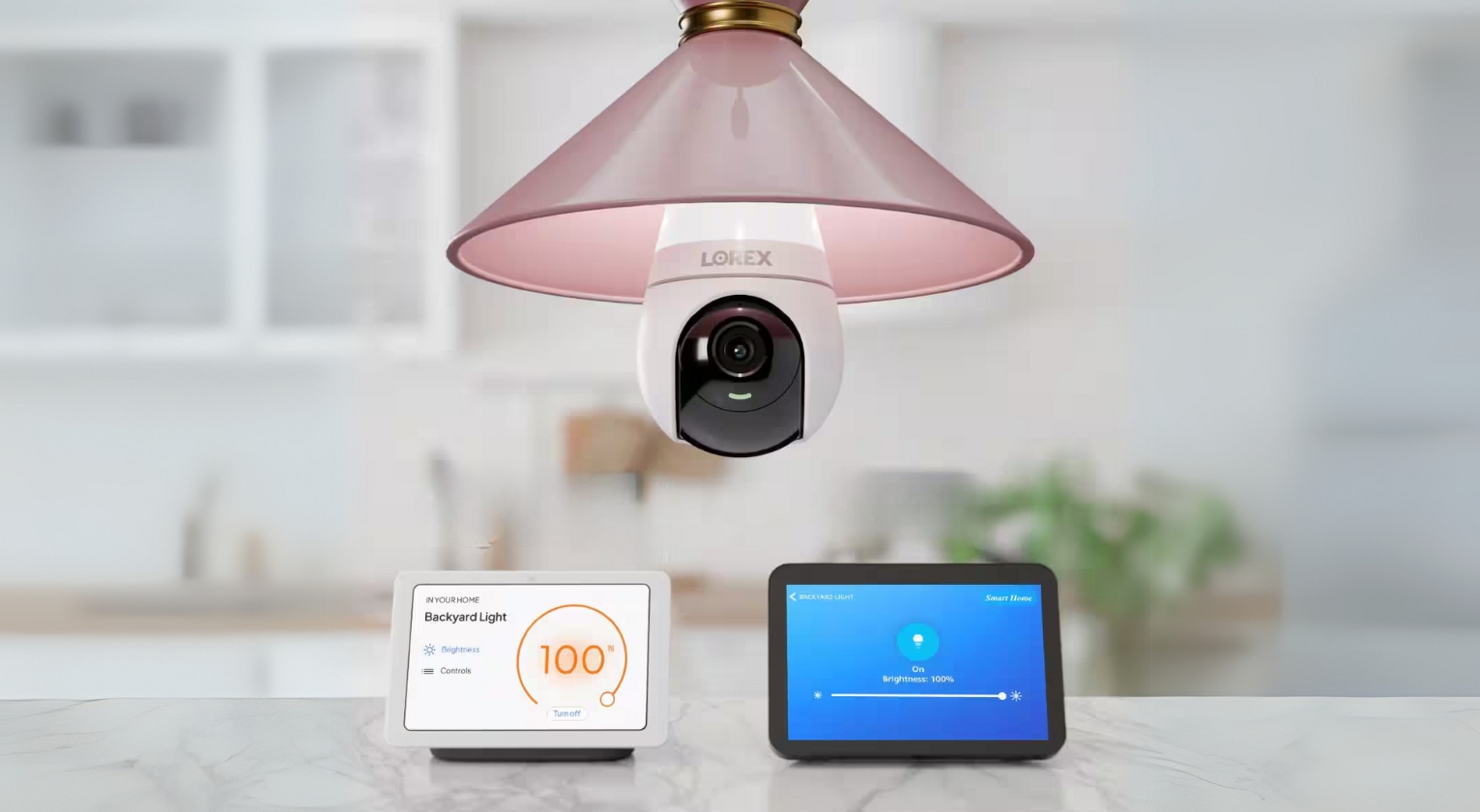 This smart bulb quietly doubles as an indoor security camera – I need it in my house
This smart bulb quietly doubles as an indoor security camera – I need it in my houseSmart home tech or spy tech?
By Lizzie Wilmot Published
-
 I can tell this new Netflix comedy series is going to have a sad twist
I can tell this new Netflix comedy series is going to have a sad twistThe Four Seasons will have light and shade
By Max Freeman-Mills Published
-
 Vollebak's Full Metal Jacket Gold Edition is equal parts luxury, science fiction and bio-armour
Vollebak's Full Metal Jacket Gold Edition is equal parts luxury, science fiction and bio-armourThe most luxurious survival jacket ever made? Possibly.
By Matt Kollat Published